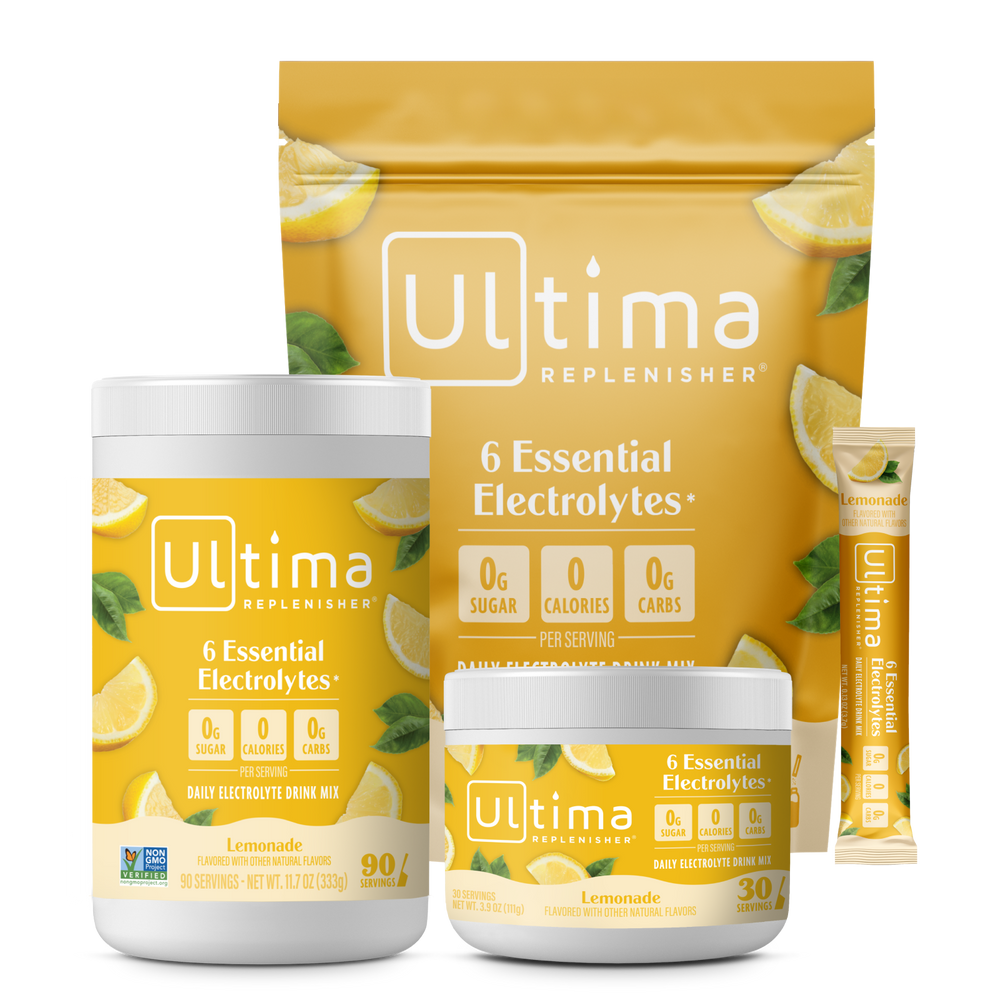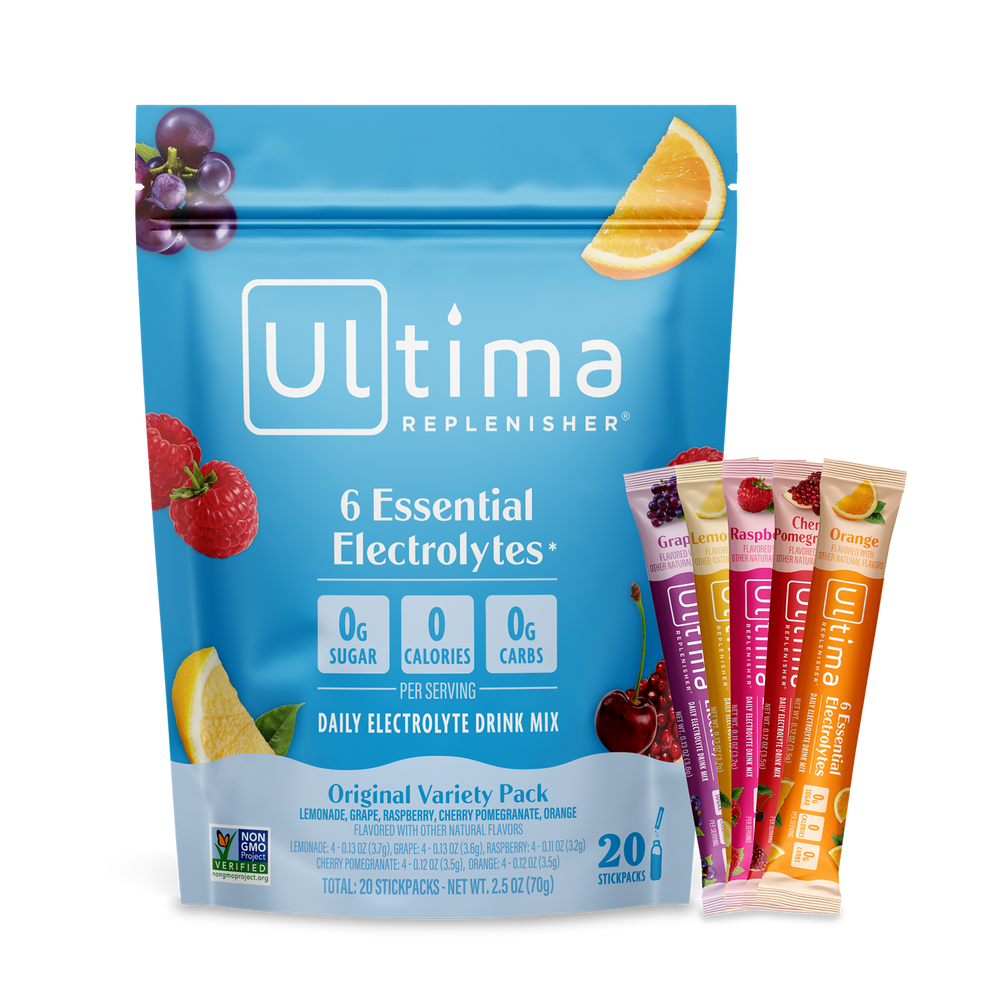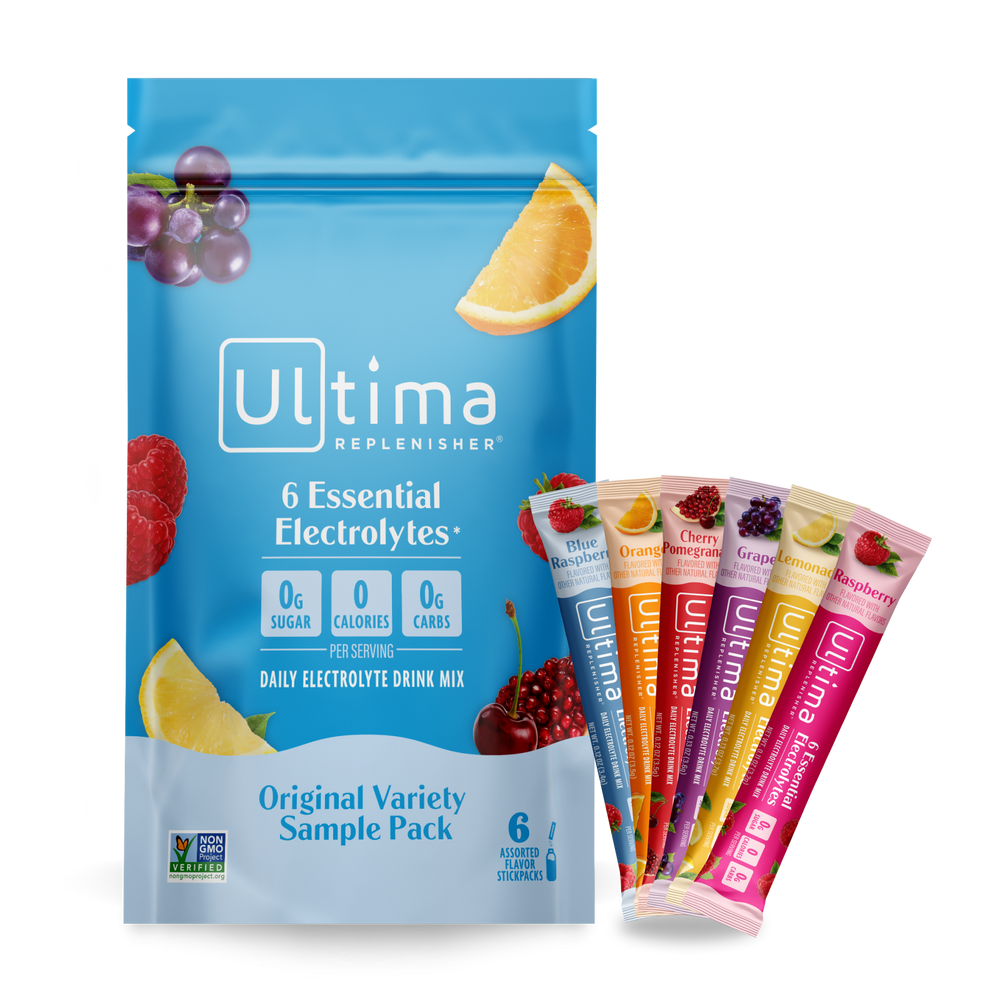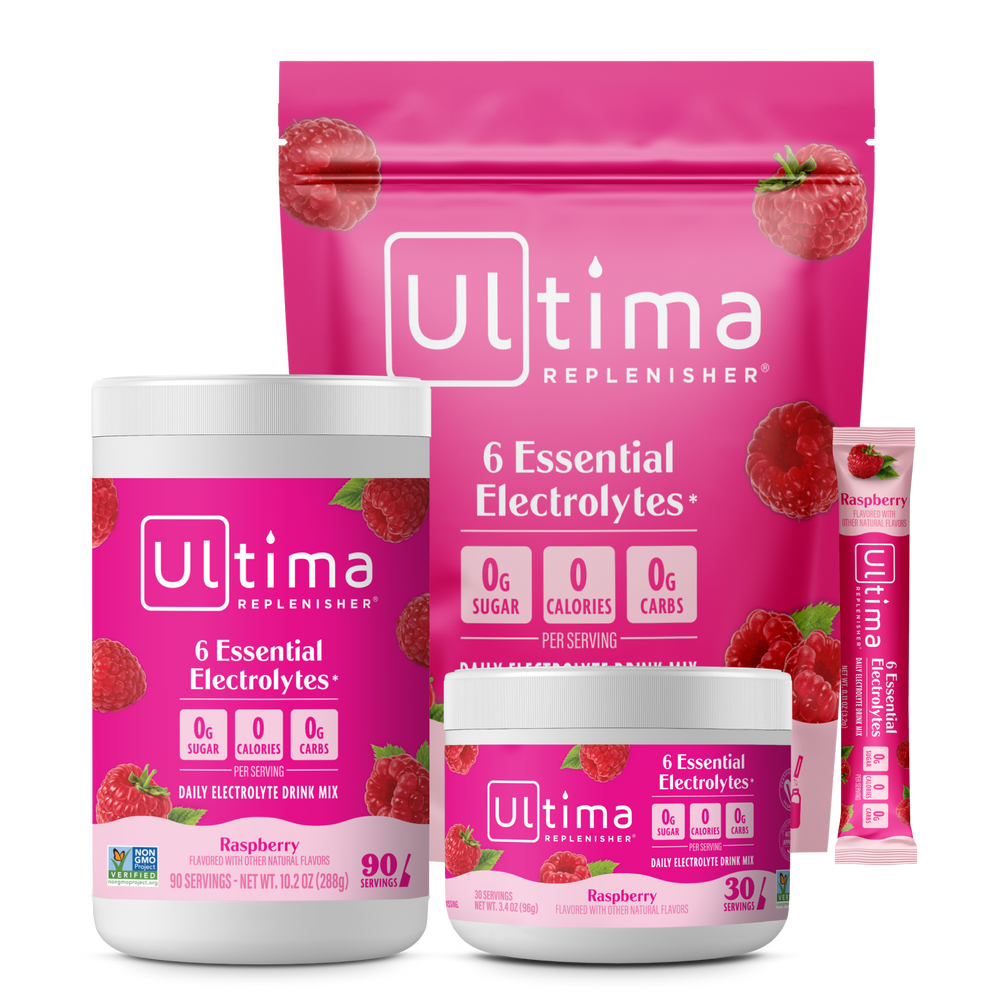
Electrolyte Supplements for Keto
Keto does many things to your body. It switches on ketosis. It burns fat. And it increases water loss, which leads to a loss of electrolytes. Because electrolytes are so crucial to good health, it is essential that you maintain a healthy level of them. Because keto leads to electrolyte loss, you should be sure to adjust your diet to include more electrolytes. This will help prevent against negative symptoms and dangerous illness. One of the ways to do this is by using electrolyte supplements for keto to augment your diet. Here’s what we’ll look at:
- What are electrolytes?
- Why are electrolytes so important to your body?
- How does keto make you lose electrolytes?
- The 6 main types of electrolytes.
- How you can use electrolyte supplements to help with your keto diet.
What are electrolytes?
Electrolytes are tiny particles that have two key features:
- They are essential minerals for your body.
- They have an electric charge.
Remember in middle school when your science teacher rubbed a balloon on her head and her hair stood straight up? That happened because the friction transferred charge between her hair and the balloon. Electrolytes also have a charge. Instead of friction, they get their charge through a chemical reaction.
Their charge allows them to interact in interesting ways in chemical processes. When dissolved in water, for example, they will conduct electricity. Water does not conduct electricity very well, but salt and other minerals dissolved in it do.
Why are electrolytes so important to your body?
Electrolytes help your body with a variety of functions, including:
- producing energy
- stimulating muscle contractions
- supporting cellular function
- transmitting nerve signals
- regulating pH levels
- regulating osmotic pressure
- keeping you hydrated
Because electrolytes are charged, this allows them to conduct electricity. This is why they are so crucial to your nervous system.
You can think of electrolytes as the particles that run the electricity in your body. An electrolyte imbalance can lead to serious problems, including:
- headache
- fatigue
- irregular heartbeat
- numbness and tingling
- confusion
- muscle weakness and cramping
Why does keto make you lose electrolytes?
Loss of electrolytes is a common side effect of the keto diet. Some people think that keto makes you lose electrolytes because carbs contain electrolytes. When you cut out the carbs, you cut out the electrolytes. This isn’t quite true, however. While carbs often contain loads of electrolytes, so do plenty of non-carb foods. Anything with salt in it contains electrolytes, since salt is an electrolyte.
What actually happens is a little more complicated. Water in your body gets stored along with carbohydrates. The carbs in your bloodstream help keep water in place. When you remove all the carbs from your diet, the carbs no longer hold down the water. Water leaves the body quite quickly on a keto diet.
As any beginner knows, keto increases urination by a lot. When the water goes, the electrolytes go with it. Your body stores most of its electrolytes dissolved in water.
The six main types of electrolytes your body needs to consume 6 main electrolytes in order to function properly:
- sodium
- potassium
- magnesium
- calcium
- phosphorus
- chloride
Sodium
Everyone knows about sodium. It’s in salt, it tastes great, and it might raise your blood pressure if you eat too much of it. Low on sodium? Just eat more salt. You can also find abundant sodium in pickled foods and cheese.
Sodium helps regulate osmotic pressure and the body’s water pressure. It also helps transmit nerve signals and contract muscles. One downside to sodium is that having too much of it can actually cause you to lose potassium. It’s important to have the right amount, not too much.
Symptoms of sodium deficiency include:
- Headache
- Fatigue
- Difficulty concentrating
Potassium
Potassium is found in certain fruits, including bananas, avocados, and sweet potatoes.
Potassium works with sodium to transmit nerve signals and contract muscles.
Symptoms of potassium deficiency include:
- Muscle cramps
- Muscle twitching
- Rapid heartbeat
Magnesium
Magnesium is most commonly found in seeds and nuts. You can also find magnesium supplements at most drug stores. Like sodium and potassium, it helps contract muscles. Magnesium also forms bones and teeth, and activates enzymes. And for females, magnesium helps alleviate signs of PMS.
Another thing magnesium does is metabolize fat. This means if keto makes you lose too much magnesium, it won’t help you lose weight.
Symptoms of magnesium deficiency include:
- Muscle cramping
- Twitching
Calcium
Everyone knows calcium is in milk and other dairy products. But you can also get it in green leafy vegetables like spinach. This is helpful if you are lactose intolerant. Like magnesium, calcium helps transmit nerve signals and form bones and teeth. Additionally, calcium helps clot blood.
Symptoms of calcium deficiency include:
- Weak and brittle bones, hair, nails, and teeth.
- Confusion or memory loss
- Muscle spasms
Phosphorus
Phosphorus comes in a wide variety of foods, including:
- dairy products
- fish
- meat
- poultry
- eggs
- legumes
- nuts
- grains
- vegetables
If you have ever seen glow in the dark toys or glow sticks before, you’ve seen phosphorus. It facilitates a chemical reaction that stores light for several hours. But don’t worry- your body only uses a small amount of phosphorus. Your skin won’t glow. Just don’t eat any glow sticks!
Phosphorus is especially important because it helps create the energy molecule, ATP. Without ATP, you will literally have no energy. Phosphorus also helps with nerve signaling and repair of cells and tissues.
Symptoms of phosphorous deficiency include:
- Loss of appetite
- Anxiety
- Stiff joints
- Irritability
- Weakness
Chloride
Chloride is the other electrolyte that’s in table salt. The technical name of salt, by the way, is sodium chloride. It is made of both sodium and chloride. Similar to sodium, chloride can be found in cheese, pickles, and any salty food.
Symptoms of chloride deficiency include:
- diarrhea or vomiting
- fluid loss
- dehydration
- weakness
- difficulty breathing
In many cases, people experience sodium deficiency and chloride deficiency at the same time. This happens because sodium and chloride are frequently consumed together.
Other electrolytes your body does need other electrolytes to function, like bicarbonate (which is found in baking soda). However, your body will produce these electrolytes naturally on its own if it is functioning correctly.
In some cases, it is possible that your body may not produce enough bicarbonate to function properly. In that case, drinking baking soda dissolved in water can help.
How you can keep on top of your electrolytes on keto.
First, the good news. Not everyone will have a serious electrolyte problem on keto. They can easily maintain electrolyte balance with a supplement.
Most people who need electrolyte supplements on keto fall into two categories:
- athletes and bodybuilders
- beginners
Beginners often get the keto flu, a cluster of symptoms including fatigue, headache, and nausea, that may last for several weeks. The keto flu happens for several reasons, and one of them is a loss of electrolytes. If you experience the keto flu, consider taking an electrolyte supplement.
Athletes and bodybuilders sweat more than the average person. This leads to greater electrolyte loss. They usually need to supplement their diet with additional electrolytes. A mix like Ultima Replenisher’s electrolyte hydration mix works well because it combines all 6 of the major electrolytes your body needs without added sugar.
People with additional dietary restrictions may also need to take electrolyte supplements. For example, pursuing intermittent fasting or a vegan diet on top of keto may result in more electrolyte loss.
You can get a urine test if you want to determine if you have an electrolyte imbalance. But if you are a keto beginner or an athlete or bodybuilder, and you have serious side effects, there’s a pretty good chance you do have an imbalance.
The best way to keep on top of your electrolyte balance is to change your diet and take a supplement. Foods like salt, bananas, and avocados contain lots of electrolytes. But if you want to be sure you get all the electrolytes you need, it’s best to take a supplement.
Why can’t I just drink Gatorade?
Gatorade contains loads of sugar. It’s as simple as that. A single 20-ounce serving of Gatorade may have 36 grams of sugar, which would immediately break ketosis.
Really, Gatorade is not intended for most people, even though it is marketed to everyone. Gatorade was invented for high-performance athletes, but the amount of sugar in it is not good for most people. Especially, low carb or fat fueled athletes!
Can I get too many electrolytes?
Absolutely. Too much of anything is a bad thing, and electrolytes are no exception. But if you follow a keto diet, you are much, much more likely to have too few electrolytes, not too many. The main exception to this rule is if you ingest a large amount of supplements. To avoid doing this, just avoid taking more than the recommended dosage.
Depending on which electrolyte is out of balance, too much can lead to any of the following symptoms:
- dizziness
- vomiting and diarrhea
- arrhythmic heartbeat
- nausea
- fatigue
- seizures
- bone and joint pain
- nerve damage
Be careful when choosing an electrolyte supplement. The main reason: many of them contain sugar. Lots of supplements contain other ingredients, too. Caffeine is a common added ingredient to electrolyte supplements. This may or may not be an issue for you, depending on your current caffeine intake. But keep in mind that caffeine encourages urination, which will result in even more electrolyte loss! If you want to play it safe, consider Ultima Replenisher’s electrolyte hydration mix. It is sugar and caffeine free, so it gives you only what you need.
Everybody needs electrolytes. While keto will likely lead to a short term loss of electrolytes, your body can adjust and adapt to its new state. Using an electrolyte supplement might help if you are experiencing negative symptoms due to keto. It is essential to keep a close eye on your electrolyte levels if you are an athlete or bodybuilder. Physical activity leads to sweating, which leads to even more electrolyte loss. An electrolyte imbalance may cause several negative symptoms, including headache, fatigue, and nausea. In the long term, you could experience serious illness, or even death.









